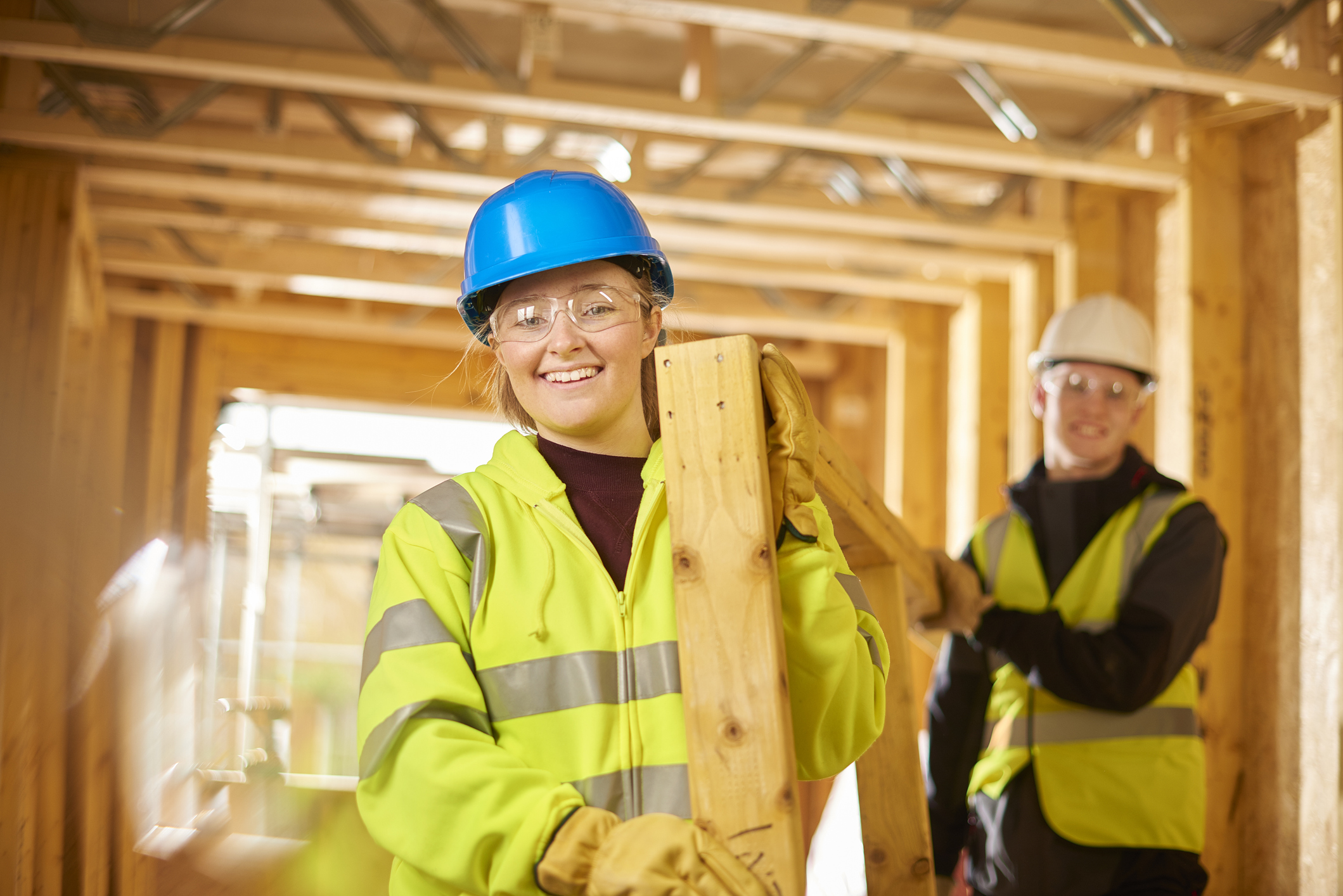Are you a landlord who needs help paying for repairs to a substandard, low-income unit or a rooming house or to convert a non-residential property into affordable rental housing? Or are you looking for financial support to create a secondary suite for an adult with a disability?
The Rental Residential Rehabilitation Assistance Program (RRAP) provides landlords with financial help to repair substandard units rented to low-income households and rooming houses. The program also provides funding to help homeowners modify their property to create a secondary/garden suite for an adult with a disability. And the Rental Conversion Program provides funding to help convert a non-residential property into affordable rental housing.
These programs are funded by a cost-sharing agreement between the Province of New Brunswick and the Government of Canada.
Repairs to Rental Units
The amount you may receive is based on the cost of mandatory repairs and the number of eligible self-contained units in the project. The assistance is in the form of a forgivable loan. The maximum amount you may receive for each self-contained unit is $36,000. With the exception of non-profit organizations, owners must contribute 25% of the total cost of mandatory repairs. All approved applicants must enter into a rental agreement to ensure that rents remain affordable to low-income occupants during the earning period of the loan.
Repairs to Rooming Houses
The amount you may receive is based on the cost of the mandatory repairs and the number of eligible bed units in your rooming house. The assistance is in the form of a forgivable loan.
The maximum you may receive for each bed unit is $24,000. Except for non-profit organizations, owners must contribute 25% of the total cost of mandatory repairs. All approved applicants must enter into a rental agreement to ensure that rents remain affordable to low-income occupants during the earning period of the loan.
Secondary/Garden Suites by Homeowners
The maximum forgivable loan for creating a secondary/garden suite or an extension to an existing home is $36,000. Owners must contribute 25% of the total cost. You must produce equity or provide proof of other sources of financing to cover costs beyond the maximum forgivable loan.
Converting a Non-Residential Property
The amount you may receive is based on the cost of eligible work and the number of eligible units within the project. The assistance is in the form of a forgivable loan. The maximum amount you may receive for each self-contained unit is $36,000. The maximum forgivable loan per bed unit is $24,000. Except for non-profit organizations, owners must contribute 25% of the total mandatory repairs. All approved applicants must enter into a rental agreement to ensure that rents remain affordable to low-income occupants during the earning period of the loan.
Landlord Repairs
A property is eligible if it meets the following requirements:
- It is owned by a private entrepreneur, non-profit corporation or housing co-operative that does not receive any government housing assistance.
- For rental units, it contains one or more self-contained units, rented or intended to be rented to occupants with incomes below the established income ceilings set by Social Development and Canada Mortgage and Housing (CMHC).
- For rooming houses, it contains more than three bed units that are rented to people not related to the owner and intended to serve as permanent accommodation.
- The post-RRAP rent charge will be at or below levels established by Social Development and CMHC.
- The property is at least five years old and lacks basic facilities or requires major repair in at least one of the following areas:
- structural
- heating
- electrical
- fire safety
- plumbing
Properties that do not operate as bona fide rental enterprises, such as nursing homes, care facilities and special purpose housing, are not eligible for RRAP funding.
Secondary/Garden Suites
Secondary/garden suites can only be created on existing family residential properties. You must show that the property can feasibly be converted to include a secondary or garden suite that will meet Social Development requirements. The new unit must be modest in size and amenities.
This program is eligible for any person who is restricted or cannot perform an activity in the manner or within the range considered normal. Your income must be below the established Housing Income Limit, which varies by household size and location.
Converting Properties
A property is eligible for the Residential Conversion Program if:
- It is owned by a private entrepreneur, non-profit corporation or housing co-operative.
- There is a legitimate landlord-tenant relationship.
- The newly converted property will have more than three bed units, or one or more self-contained units rented to occupants with low incomes.
- The rent will be at or below levels established by this Department. The project must be financially viable based upon the agreed-upon post-RRAP rents.
Properties that do not operate as bona fide rental enterprises are not eligible for conversion assistance.
Social Development works closely with applicants at every step of the application and approvals process for the Rental Residential Rehabilitation Assistance Program and the Rental Conversion Program.
To begin, call Social Development at 1-833-733-7835. Press 1 for English, 2 for French. Press 2 to talk to someone about housing services. Tell the agent that you would like help with the Rental Residential Rehabilitation Assistance Program or the Rental Conversion Program.
The housing agent will do an initial screening over the phone. Please be ready to share basic information about your property, household and the repairs or modifications you would like to make.
If you meet the basic eligibility criteria, the agent will advise you of the next steps to apply.

Please be ready to share basic information about your property, household and the repairs or modifications you would like to make.